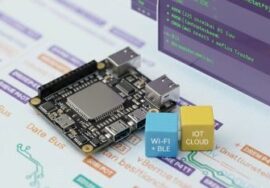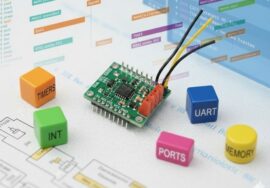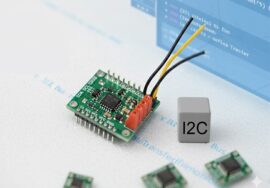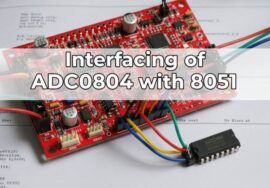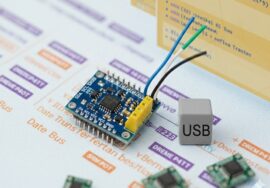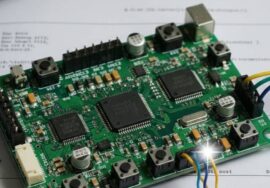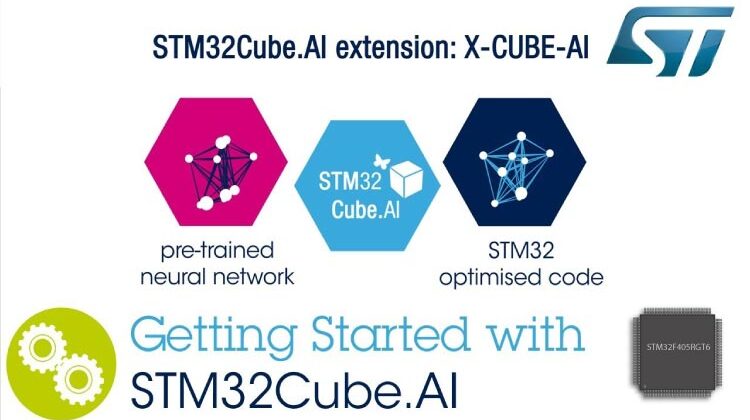
AI Integration in STM32 Devices: Advancing Embedded System Capabilities
AI Integration in STM32 Devices: Advancing Embedded System Capabilities
The rapid advancements in artificial intelligence (AI) have reshaped industries, bringing powerful computational capabilities closer to the edge. Embedded systems, traditionally characterized by their constrained resources, are now evolving to incorporate AI features. STM32 microcontrollers (MCUs) from STMicroelectronics have embraced this technological shift, providing developers with tools and features that facilitate AI integration in edge computing applications.
The Rise of Edge AI in Embedded Systems
Edge AI enables devices to process data locally without relying on cloud computing. This is particularly beneficial for applications that require low latency, improved data privacy, and real-time decision-making. From industrial automation and smart home devices to wearables and automotive systems, embedded AI is becoming a key differentiator.
AI Capabilities in STM32 Devices
STMicroelectronics has introduced AI support across its STM32 ecosystem, enabling developers to deploy machine learning models directly on microcontrollers. Some key features and tools include:
STM32Cube.AI: This expansion pack for STM32CubeMX allows developers to convert pre-trained neural network models into optimized code for STM32 MCUs. It supports popular AI frameworks like TensorFlow Lite, ONNX, and Keras.
AI Hardware Acceleration: Certain STM32 devices, such as the STM32H7 and STM32MP1 series, offer enhanced processing capabilities to handle AI workloads efficiently.
Power-Efficient AI Processing: STM32 devices are designed with low power consumption in mind, making them ideal for battery-powered applications requiring AI processing.
Comprehensive Development Tools: The STM32 ecosystem includes tools like STM32CubeMX and STM32CubeIDE, which simplify AI model integration and firmware development.
Applications of AI in STM32-Based Projects
The integration of AI in STM32 devices has unlocked numerous possibilities across various sectors:
Predictive Maintenance: AI algorithms running on STM32-based sensors can analyze vibration, temperature, and other parameters to predict equipment failures in industrial settings.
Smart Home Automation: AI-enabled STM32 devices can recognize voice commands, detect motion patterns, and optimize energy consumption.
Healthcare Devices: Wearable health monitors powered by STM32 microcontrollers can analyze biosignals in real-time, providing early detection of health anomalies.
Autonomous Vehicles and Robotics: AI models deployed on STM32 devices enable real-time object detection and decision-making for autonomous navigation.
Security Systems: AI capabilities allow STM32-based security cameras to perform facial recognition and detect unusual activities.
Challenges and Solutions for AI Integration
Despite the advancements, integrating AI into embedded systems presents challenges such as:
Resource Constraints: Limited memory and processing power require careful optimization of neural network models. STM32Cube.AI addresses this by optimizing models for resource-efficient execution.
Model Accuracy vs. Efficiency: Balancing model accuracy and computational efficiency is crucial. Quantization and pruning techniques can help reduce model size while maintaining accuracy.
Power Consumption: Efficient power management techniques are essential to ensure AI features do not compromise battery life.
Future Trends in AI for STM32 Devices
The future of AI in STM32 devices looks promising, with trends including:
Federated Learning: Decentralized AI training on STM32 devices, preserving data privacy while continuously improving models.
Enhanced AI Accelerators: Hardware advancements to support more complex AI models without compromising performance.
Advanced Connectivity: Seamless integration with IoT networks to enable collaborative AI-driven applications.
Edge Security: Incorporating AI-based security measures to protect edge devices from cyber threats.
Conclusion
AI integration in STM32 devices is transforming embedded systems by enabling intelligent decision-making at the edge. With robust tools like STM32Cube.AI and hardware support for AI processing, developers can harness the power of AI to build innovative and efficient solutions. As AI continues to evolve, STM32 devices are well-positioned to lead the charge in embedded intelligence, driving advancements across diverse industries.



